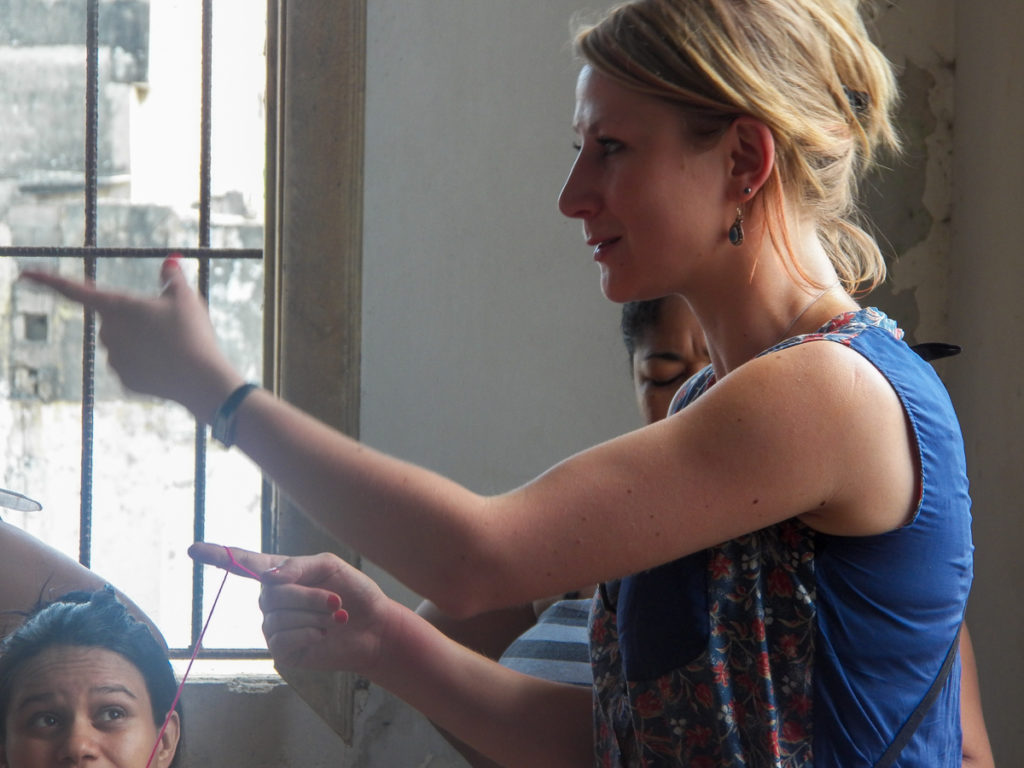
Estelle Vanwambeke explains why she feels it is important now to gather our experiences of Coronavirus to confront the future challenge of survival for our craft cultures.
I am a French interdisciplinary researcher based in Brussels since 2016, after nine years of living in Bogotá. My fields of research and experimentation are social sciences and arts, especially design (since 2010); rural and urban territories in France and Colombia; industrial wastelands, overcrowded prisons, antiquated hospitals, queer stages, neighbourhood libraries, 2.0 textile workshops and Corchorus fields. Together with the different communities I work with, we investigate our relation to the territory and design possible scenarios for liveable futures.
In February 2020, I initiated a participatory action-research for Oxfam in Belgium, which aims at opening the discussion and proposing alternatives on what could be a Fair Transition for small craft producers in a globalised world which is currently facing unprecedented ecological changes.
One of the issues Oxfam wants to address is the future of solidarity-based economies between global Southern and Northern communities, especially in the fair trade craft sector. This would consider the increasing climate and ecological challenges and the locavorism growing in wealthiest sectors of Northern population.
Therefore, my purpose is first to investigate imaginaries and representations people make of the future of consumption, production and trade exchanges, taking into account the ongoing ecological mutations; and second to create new collective narratives, for possible shared and solidarity-based futures.
An important part of the research includes fieldwork with craft workers and traders in Asia, initially planned for May-August 2020, but Coronavirus made things otherwise.
Indeed, spreading Coronavirus, and the consequent sanitary measures taken in a domino effect by governments all over the world, are challenging trade in general, and the craft sector in particular.
Oxfam´s international fair trade value chains are locked down, as are their consumers, producers, traders, national and international transporters, shop assistants and volunteers. All the actors of the chains are facing total or partial unemployment under different socio-economic conditions, with unbearable consequences for most of them.
On the other hand, local trade seems more flexible to adapt—not without difficulty—to the conditions of the current crisis: some local textile factories and fablabs managed to avoid layoffs by turning to masks production for care institutions; web developers experiment new online distribution platforms so that local farmers can keep selling their products, among other interesting examples.
Thus, this crisis may represent a chance for the craft sector to think about the way our production, consumption and exchanges of all kinds (artifacts, raw material, knowledge…) can continue, and evolve.
The anthropologist and philosopher Bruno Latour argues that we would waste the crisis if we don’t take advantage of this extraordinary situation. In a recent article, he argues that if we have a good chance to come to the end of Coronavirus, we may have none to come to the end of a much bigger one: the ongoing ecological mutations.
We, humans, have the response-ability (following the wording of Donna Haraway, feminist biologist and philosopher), to take charge of the current sanitary crisis, imagine and design proposals that make us able to inhabit present and future mutations, in cohabitation with other living species.
Inspired by the “ledger of complaints” (cahiers de doléance) in use during the French Revolution period, Latour suggests we take the time to describe the situations we are living in—descriptions, not opinions. Indeed, from the exhaustive descriptions of dozens, hundreds and millions of individual lives and ways of living, we can identify collective attachments and dependencies of all kinds—or, as Latour writes, “conflicting lines, alliances, controversies and oppositions”. We will have to make do with if we want to share a common and livable world.
This is the proposal I want to share with the Garland community of craft and design workers and thinkers. The proposal is to take the time, first to answer some questions and describe to what extent our daily life and work activity is challenged by Coronavirus, and second to compare descriptions, and discuss together ways to go out from the crisis, to go on crafting the world we want to live in, taking into account the ongoing ecological mutations, which may imply—we now know that—new globalized viruses, irreversible forest fires and damageable foundations.
✿
👉 Let us know your thoughts. You are invited to participate in this survey here. We will collect the responses on 8 May. These will form the basis of an open forum on 19 May which will contribute to a report for Oxfam The report will be shared on the Garland platform.

